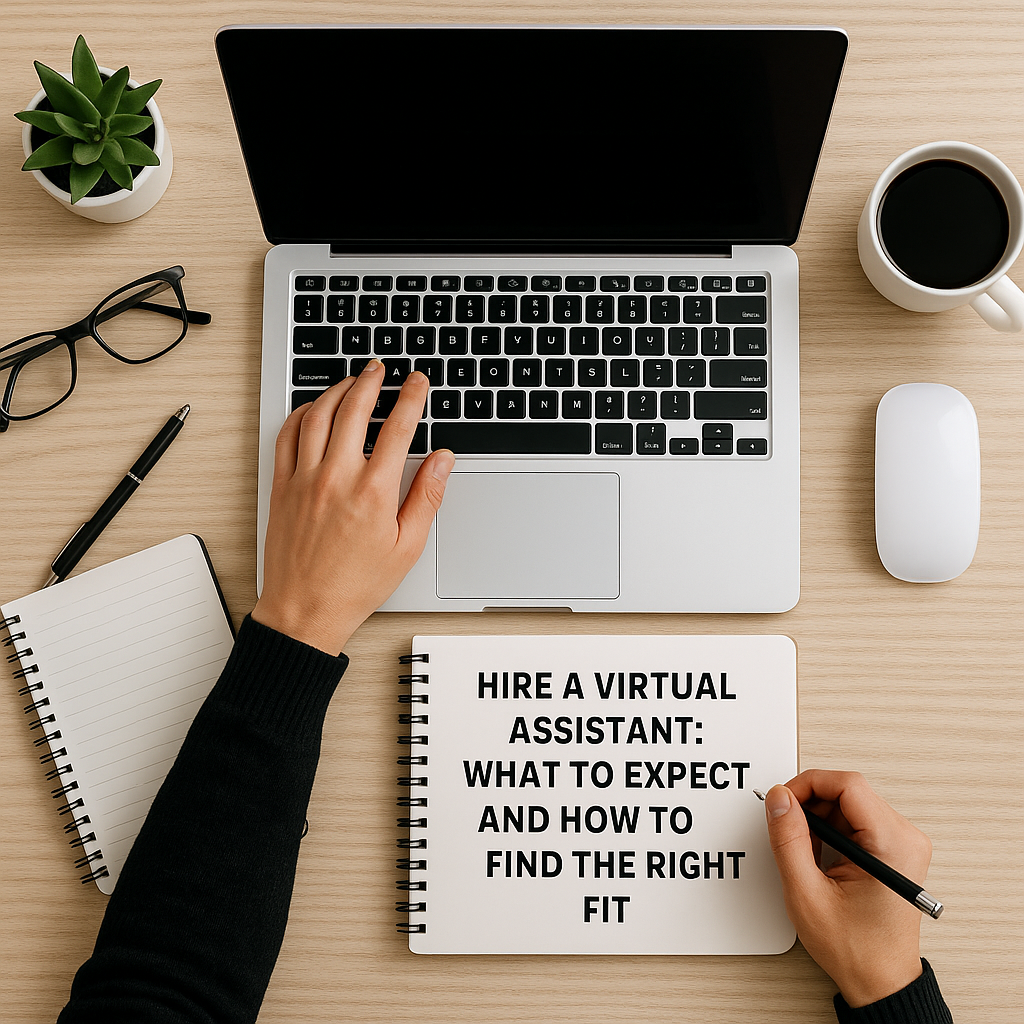The way leaders manage their workload has shifted. With more teams working remotely and businesses scaling quickly, the demand for flexible support continues to rise. Many executives want to lighten their load without committing to another full-time hire.
This is where virtual assistants step in. If you’re ready to hire a virtual assistant, here’s what you should know before making the decision. This guide covers the benefits, what to expect, and how to find the right fit so your investment delivers results.
Why Hire a Virtual Assistant?
Save Time Where It Counts
Time is the most valuable resource for any executive. Hours spent clearing inboxes, scheduling calls, or chasing follow-ups take away from growth, strategy, and leadership. A virtual assistant gives the time back by handling the work that doesn’t require your direct attention.
Reduce Stress and Mental Load
Every decision drains energy. Delegating routine tasks to a VA clears mental space for priorities to move the business forward. Instead of juggling dozens of details, you focus on projects, clients, and opportunities with less stress.
A Cost-Effective Solution
Hiring an in-house assistant means paying a salary, benefits, and overhead. When you hire a virtual assistant, you pay only for the support you need. Whether it’s a few hours a week or ongoing coverage, you control the investment without sacrificing quality.
More Than Admin Help
The return on investment goes well beyond inboxes and calendars. A skilled VA creates systems, manages workflows, and anticipates needs. In practice, this support feels like an extension of your leadership, giving your team the stability to perform at a higher level.
What to Expect When You Hire a Virtual Assistant
When you bring on an executive assistant, you’re not hiring someone for a single narrow task. You’re gaining support across the areas of your day that eat up time but don’t always need your direct involvement.
Typical responsibilities include:
- Email and inbox management — filtering messages, drafting replies, and flagging priorities so your inbox stays under control.
- Scheduling and calendar support — booking meetings, avoiding conflicts, and structuring time for both work and recovery.
- Research and reporting — gathering background information, pulling data, or preparing quick summaries before a meeting or decision.
- Client communication — following up on leads, sending reminders, or checking in with partners to keep relationships moving forward.
The real strength of virtual executive assistant services is flexibility. One executive may lean on their assistant for scheduling and travel, while another hands off billing, document prep, or vendor coordination. Many executive assistants can pick up new tools and processes quickly, adapting as your business grows. With the right guidance, they become part of your rhythm instead of a separate function.
The Hiring Process: How to Find the Right Fit
Finding the right assistant is about more than skill. You’re choosing someone who will work closely with you, often with access to sensitive information. Here’s how to approach the process.
Where to Look
Start with referrals if you can. Word-of-mouth often leads to assistants who have already built trust with someone you know. Agencies and managed services are another option if you want vetted candidates. For more flexibility, freelance platforms like Upwork or Fiverr offer access to thousands of virtual assistants worldwide. These platforms can be cost-effective, but they require careful screening to ensure you’re getting quality support. LinkedIn is another place to find experienced executive assistants who specialize in remote work.
Screening Candidates
Look beyond the résumé. Portfolios, client testimonials, and trial tasks reveal how an assistant works in real situations. Short projects or paid test assignments show you their approach to communication, detail, and follow-through.
Interviewing for Fit
Ask about more than tools. Pay attention to communication style, proactivity, and whether they ask good questions. Familiarity with platforms like Asana, Slack, or HubSpot is useful, but chemistry matters just as much.
Trust and Discretion
An executive assistant often sees the inside of your calendar, inbox, and financial systems. Discretion is critical. The right hire is someone you can rely on to handle sensitive information with care, freeing you to delegate without hesitation. For extra peace of mind, many executives ask new assistants to sign a non-disclosure agreement (NDA). It formalizes confidentiality and sets a professional tone from day one.
Traits of a Great Virtual Assistant
The best executive assistants share certain qualities making them stand out from the rest. Skills are important, but how they show up in the partnership matters even more.
- Responsiveness
You want an assistant who follows through without you chasing updates. Timely responses and consistent follow-up show reliability. - Tech fluency
A modern assistant needs to be comfortable with tools like Slack, Asana, Notion, or Zoom. The more fluent they are, the smoother your workflows will run. - Proactive problem-solving
Instead of waiting for instructions, great assistants anticipate needs. They spot scheduling conflicts, pull together materials before a meeting, and often say, “It’s already taken care of.” - Adaptability
Every business evolves. A strong assistant adapts quickly, learning new tools or stepping into unfamiliar processes with ease. Whether it’s handling invoices, coordinating a project, or supporting HR tasks, adaptability is what keeps their value high.
Finally, chemistry and working style matter as much as skill. You’re choosing someone who will be in sync with your day. If communication feels natural and your priorities align, the relationship becomes a real partnership rather than a transaction.
Common Mistakes to Avoid When You Hire a Virtual Assistant
Hiring the wrong way can cost time, energy, and trust. Here are the mistakes to avoid when you decide to hire a virtual assistant:
- Chasing the lowest cost
Price matters, but the cheapest option often ends up being the most expensive in wasted hours and corrections. Look at value, not just rates. - Skipping onboarding
Even the best assistant can’t read your mind. Without clear expectations, access to tools, and a proper handover, you’ll both get frustrated. Invest a little time up front to set them up for success. - Weak communication rhythms
If you don’t establish check-ins, updates, or a simple reporting structure, tasks fall through the cracks. A short daily or weekly touchpoint keeps everything aligned.
Avoiding these pitfalls helps you build trust faster and ensures the relationship works smoothly from the start.
How to Onboard and Set Up for Success
Hiring an executive assistant is only the first step. How you bring them into your workflow determines whether the partnership succeeds.
- Start with a clear delegation list
Before your assistant logs in on day one, outline the tasks you want off your plate. Start small: inbox management, scheduling, or research. As trust builds, you can add higher-value responsibilities.
- Learn how to let go
Delegation is not always easy for executives. It can feel strange to hand over control of tasks you’ve always managed yourself. But letting go is where the payoff comes. The more responsibility you allow your assistant to own, the more time and focus you reclaim. Think of it as shifting from managing every detail to leading with clarity.
- Share SOPs, tools, and expectations early
Give them access to the platforms your team already uses and provide any process documents you have. Even a rough playbook helps them learn faster. Clarity up front avoids confusion later.
- Schedule regular check-ins
A five-minute daily recap or a weekly sync is often enough to stay aligned. Encourage open communication so your assistant feels comfortable asking questions and offering suggestions. Feedback loops build trust and improve performance over time.
To hire a virtual assistant is to choose more than admin help. It’s about finding the right partner who can support your goals, free your time, and adapt as your business grows. When you hire a virtual assistant who aligns with your needs, you gain more than support, you gain a strategic partner.
Ready to explore how this could work for you? Check out my services or get in touch here.

